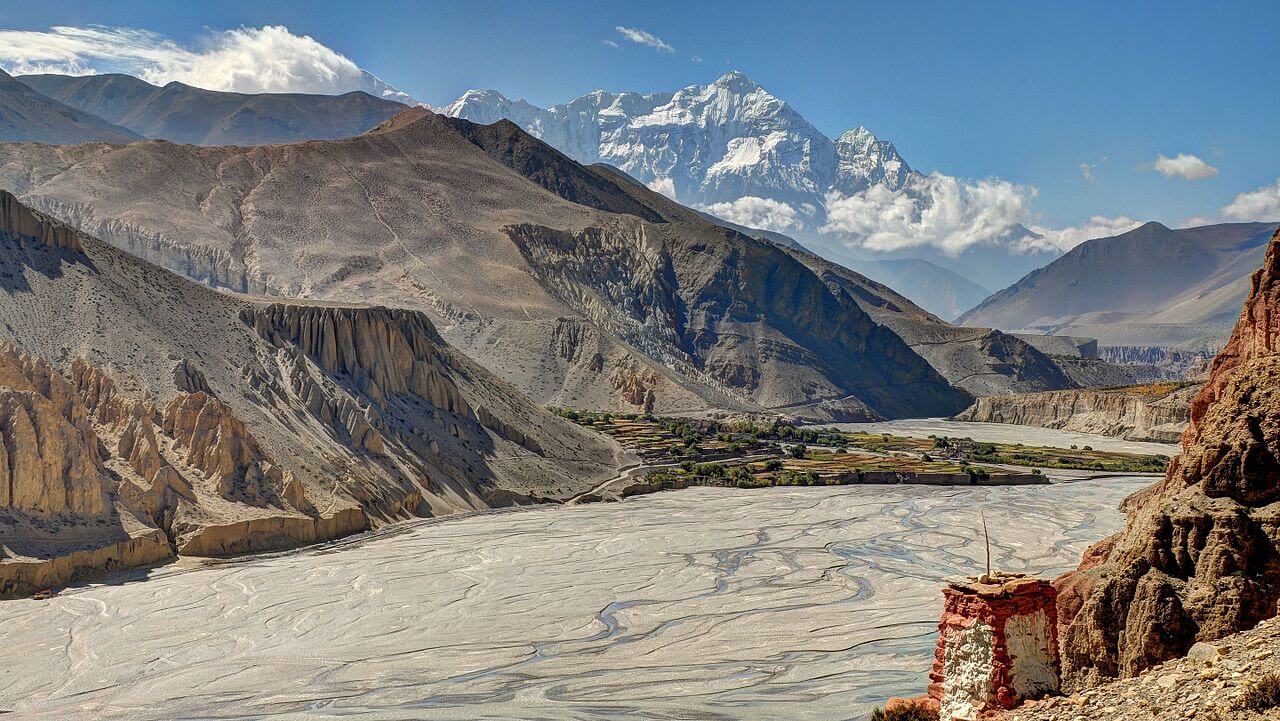The Upper Mustang Trek: A Voyage Through a Hidden Himalayan Kingdom
The Upper Mustang Trek: A Voyage Through a Hidden Himalayan Kingdom
Blog Article

The Upper Mustang trek is a captivating adventure that takes you into one of Nepal's most remote and culturally rich regions. Often referred to as the "Last Forbidden Kingdom," Mustang, or Lo, is a secluded area near the border with Tibet, where Tibetan influence is deeply ingrained in the local culture and traditions. This trek offers a unique opportunity to explore a land of rugged landscapes, ancient history, and spiritual significance.
Kagbeni: The Gateway to Upper Mustang
The journey into Upper Mustang begins in Kagbeni, a charming village that serves as the gateway to this hidden kingdom. Kagbeni is strategically located at the confluence of the Kali Gandaki and Jhong rivers and is surrounded by a dramatic landscape of arid terrain and towering peaks. The village's traditional architecture, with its mud-brick houses and narrow alleyways, reflects the region's historical and cultural heritage.
Kagbeni is not only a place to acclimate to the altitude but also a location rich in historical and cultural significance. The village offers stunning views of the surrounding mountains and serves as a perfect starting point for exploring the remote landscapes of Upper Mustang. From Kagbeni, trekkers set out on a journey through the dry and rocky terrain of Upper Mustang, heading towards the historic city of Lo-Manthang.
Ancient Wonders and Spiritual Sites
One of the most compelling aspects of the Upper Mustang trek is the opportunity to explore ancient sites that hold deep spiritual and historical significance. The trek takes you through a landscape dotted with ancient caves, rock paintings, and monasteries, each offering a glimpse into the region's rich heritage.
The caves in Upper Mustang are particularly intriguing. Carved into the cliffs and mountainsides, these caves have served as meditation retreats and dwellings for monks over the centuries. Exploring these caves provides a sense of connection to the past and a chance to witness the ancient practices of Tibetan Buddhism.
Rock paintings scattered throughout the region offer another layer of historical insight. These paintings, some of which date back centuries, depict religious themes click here and offer a visual record of the spiritual and cultural life of the people who lived in Upper Mustang.
The monasteries along the trek are essential to the spiritual landscape of Upper Mustang. These monasteries are not only places of worship but also centers click here of learning and cultural preservation. The intricate murals, sacred texts, and ceremonial artifacts found in these monasteries provide a deeper understanding of the region's Buddhist traditions.
Lo-Manthang: The Historical Capital
The trek culminates in Lo-Manthang, the ancient capital of Mustang. This walled city is a marvel of historical and architectural significance. Lo-Manthang's well-preserved buildings, including traditional Tibetan-style homes, monasteries, and the King's palace, offer a fascinating glimpse into the region's past.
The King's palace is a particularly impressive structure. Overlooking the city, the palace serves as a reminder of Mustang's former sovereignty and provides a glimpse into the regal history of the region. Exploring the palace allows trekkers to appreciate the architectural and historical grandeur of Mustang's former rulers.
Namgyal Gompa, another key site in Lo-Manthang, is an important center for Buddhist learning and practice. The monastery's collection of sacred texts, ancient relics, and vibrant murals offer a deeper understanding of the region's spiritual heritage. Visiting Namgyal Gompa provides an opportunity to witness traditional religious ceremonies and gain insight into the local Buddhist practices.
Cultural Encounters and Local Life
The Upper Mustang trek offers ample opportunities to engage with the local communities and learn about their traditional way of life. The trek passes through several villages where trekkers can interact with the inhabitants and experience their daily routines.
Tingkhar village, located near Lo-Manthang, is a particularly notable destination. The village is known for its traditional architecture, vibrant festivals, and local craftsmanship. Visiting Tingkhar allows trekkers to immerse themselves in the local culture and gain a deeper appreciation for the region's cultural traditions.
The trek also includes a visit to the Amchi museum and school, which provides insights into ancient Tibetan healing methods. The Amchi tradition, practiced by local healers known as Amchis, Upper Mustang Trek is a form of traditional Tibetan medicine. The museum offers a fascinating overview of these ancient healing practices and their modern adaptations.
Conclusion
The Upper Mustang trek is a journey into a land of ancient mysteries, breathtaking landscapes, and rich cultural heritage. From the rugged terrain and spiritual sites to the historic city of Lo-Manthang and the vibrant local communities, this trek offers an extraordinary adventure for those seeking to explore a remote and culturally significant region. For trekkers who are drawn to the allure of hidden worlds and timeless traditions, the Upper Mustang trek promises an experience that is both profound and unforgettable.